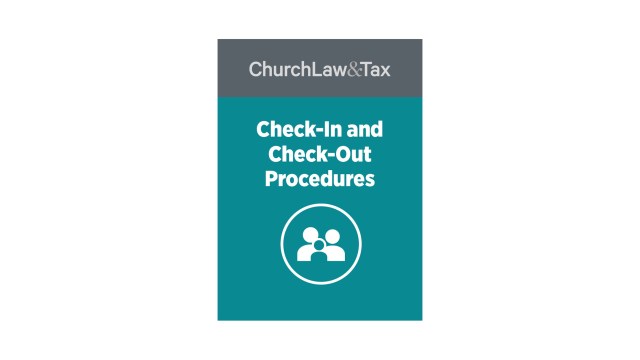• Can a member of an unincorporated church sue the church for injuries received on church property? That was the issue addressed by the Texas Supreme Court in a recent case. A member of a Congregational church was taking her minor son to a church child-care program. As she entered the educational building (on the church premises), she slipped and fell, resulting in injuries to her back. She later sued the church, alleging that her injury was caused by the church’s negligence. Specifically, she alleged that the church had been negligent in permitting the tile floor in the educational building to become slippery from moisture, and in failing to warn her of the dangerous condition. The victim had been a member of the church for 4 years, and she was on the church’s administrative board. At the time of the accident, the church was unincorporated (it incorporated a few years after the accident). A trial court dismissed the lawsuit against the church, concluding that an unincorporated church could not be sued by one of its own members. It further ruled that the church could not be liable for the injuries on the ground that it incorporated after the accident. The victim appealed this decision. A state appeals court agreed with the trial court’s decision, and the victim appealed the case to the Texas Supreme Court. In a significant opinion, the court ruled that a member of an unincorporated church who is injured because of the negligence of other members can sue the church for money damages. The court acknowledged that the longstanding rule in Texas had been that the members of an unincorporated church could not sue the church for injuries inflicted by fellow church members. It noted that this historic rule was based on the notion that the members of unincorporated churches are engaged in a “joint venture” and that the negligence of one is imputed to all the others, including a fellow member who is injured by the negligence. The court repudiated this rule, noting that it had been abandoned by most other states. The court concluded: “Why should a church member be precluded from suing an association in tort when a paid workman would be allowed to maintain an action for the very same injury … ? We are unable to discern a defensible reply to this query. Consequently, we hold that a member of an unincorporated charitable association is not precluded from bringing a negligence action against the association solely because of the individual’s membership in the association. Any assets of the unincorporated charitable association, held either by the association or in trust by a member of the association, may be reached in satisfaction of a judgment against the association.” The court avoided the issue of the personal liability of individual members of unincorporated churches for the negligence or misconduct of other members. It simply noted that this lawsuit had not named any individual church members as defendants and accordingly there was no need to address this broader issue. It did mention, however, that “protection is afforded by the simple act of incorporation.” In other words, members of unincorporated churches can eliminate any question as to their personal liability for the deeds of fellow church members simply by ensuring that their church is incorporated. Two members of the court issued a concurring opinion predicting that the court’s decision could lead to greater personal liability for the members of unincorporated churches. Why? Because “by abolishing imputed negligence and creating liability between members the liability of individual members could be increased.” The two concurring justices expressed their view that the members of an unincorporated church should not be personally liable for the actions of other members without active participation in those actions. Finally, a dissenting justice warned that the court’s decision “greatly expands the potential personal liability for the hundreds of thousands of volunteers across this state that selflessly give of their time in [charitable] activities.” The dissenting justice also effectively refuted the court’s observation that most states have abolished the historic rule that the members of unincorporated churches cannot be personally liable for the conduct of their fellow members. In fact, “a majority of jurisdictions follow the rule that a member of an unincorporated association injured due to the tortious conduct of another member cannot sue the association …. The court may have wrongly implied that the rule exempting unincorporated associations from liability is a waning doctrine. In fact, most jurisdictions still adhere to it.” The dissenting justice concluded: “The unfortunate but unavoidable result of today’s decision is that some churches across this state will discontinue a wide range of beneficial services currently rendered for their members’ benefit, frequently free of charge, so as to limit their liability. This is but one of the many disruptive and deleterious effects that today’s result may inflict upon Texas’ volunteer community, all of which the Court apparently ignored in its zeal to abolish the imputed negligence doctrine.” Cox v. Thee Evergreen Church, 1992 WL 148116 (Tex. 1992).
See Also: Unincorporated Associations
© Copyright 1992, 1998 by Church Law & Tax Report. All rights reserved. This publication is designed to provide accurate and authoritative information in regard to the subject matter covered. It is provided with the understanding that the publisher is not engaged in rendering legal, accounting, or other professional service. If legal advice or other expert assistance is required, the services of a competent professional person should be sought. Church Law & Tax Report, PO Box 1098, Matthews, NC 28106. Reference Code: m77 m58 m86 c0592
